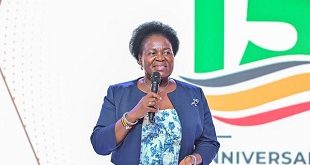
Experts reveal sectors suffering because of President
Kampala, Uganda | HAGGAI MATSIKO | Once celebrated at home and abroad as one of a new breed of African leaders, President Yoweri Museveni now finds himself the subject of intense criticism.
Observers say he faces challenges created by lack of new ideas to revive a stunted economy that might prove fatal to his political survival and that his lack of a plan to smoothly step aside when the time comes jeopardises everyone’s future.
A major boost to the economy is expected from an injection of about US$ 10 billion by international oil investors into the development phase of the oil industry. But recent political tensions have led to fears that the expected Final Investment Decision (FID), which is supposed to signal the release of these funds, could be delayed further.
Amidst all this, many observers say the political repression and the push back against opposition that Museveni is adapting are threatening the national security and economic transformation that has been his badge.
Without a clear ideology and transformative agenda, critics say, it is only his strong personality that is holding the ruling NRM party and the state machinery together.
“But he may not be president in 10-15 years,” says one Museveni critic, “If he is, he will be a lame duck with no successor and no transformation to sell.
“That makes Uganda’s future very uncertain and a risky investment,” the official added.
As this criticism mounts, Museveni; a favourite of many who has successfully held on power for over 32 years now amidst stiff opposition, is tightening the grip even more.
He has been accused of political repression in the past, but the scale and extent appears deeper and broader this time.
For some Ugandans, the events of Sept.27 – when Museveni unleashed security operatives to eject opposition legislators from parliament that had been attempting to block the ruling party from amending the constitution to scrap the age-limit are harbingers of tough political and economic times ahead.
On that day, many were disturbed that Speaker Rebecca Kadaga allowed the Special Forces, an arm of the Ugandan military that guards the president and was until recently commanded by his son Maj. Gen. Muhoozi Kainerugaba, to kick the opposition out of parliament.
The raid is seen as specifically too bad for Museveni as it is being likened to the 1966 crisis when then-Prime Minister Milton Obote deployed security forces around parliament and MPs passed the “Pigeon-Hole Constitution”.
That day’s events and the other tensions surrounding the plans to purge the constitution of the age limit also forced security to deploy heavily in the capital Kampala, raid non-governmental organisations, arrest scores of opposition politicians all the while attracting criticism from development partners and bad press locally and internationally.
When the MPs were either kicked out or abandoned parliament in protest recently, many of them announced various forms of protest including the so-called `Red Ribbon’ and a new wave of Walk-to-Work protests.
“People are not happy with the current state of affairs,” says Leader of Opposition Winnie Kizza. She says the NRM, removed the behind brakes when they removed term limits and now want to remove the front brakes by scrapping the age-limit.
“We are headed for disaster,” she says.
The government has responded with more clamped downs that Museveni is vowing to intensify.
At the recent celebrations to mark 55 years of Independent held at Bushenyi Municipal Grounds in Bushenyi district on Oct.09, Museveni warned that intolerance would be resisted in the strongest terms possible and that nobody would be allowed to undermine the security and democracy, which was bought with blood of patriots.
Security forces have since Sept. 30 besieged the home of the defacto leader of the opposition; Kizza Besigye after he urged Ugandans to join him in countrywide mass protests to show solidarity with those opposed to the lifting of the presidential age limit. The homes of opposition key figures are also routinely cordoned off and the politicians are either kept under virtual house arrest or picked up and detained when they venture out.
Depending on which side one is on in the growing gap between pro and anti-Museveni camps, these moves are seen as either a clampdown or the government’s bid to return sanity.
The push to scrap the age limit from the constitution and allow Museveni to stay in power has sparked debate and animosity.
Up to 75 percent of Ugandans are opposed to the lifting of the age limit according to a survey by Afrobarometer, a respected pollster.
 The Independent Uganda: You get the Truth we Pay the Price
The Independent Uganda: You get the Truth we Pay the Price




I need to get more and more importantly
yes, he is the number one uganda’s enemy.
yes, he is the number one uganda’s enemy of progress.
Indeed M7 is the African Problem these days. The so called African democratic countries which are trying to bring peace and sanity to Somalia are involved in destabilizing their own respective home countries. They are every day detaining the opposition and using military police to stop free speech and a peaceful transition of political leadership in their own backyard. In some of these countries the police is trigger happy arresting women and children and shooting them point blank with live bullets.
This whole African Union political charade in Somalia and Sudan, is like former Saddam Hussein of Iraq trying to liberate Kuwait.
What has gone wrong with Ruanda when you handcuff women who have said something different from yours?
It is not an African culture to handcuff a lady who does not agree with you in ideas. That is an abuse these days.